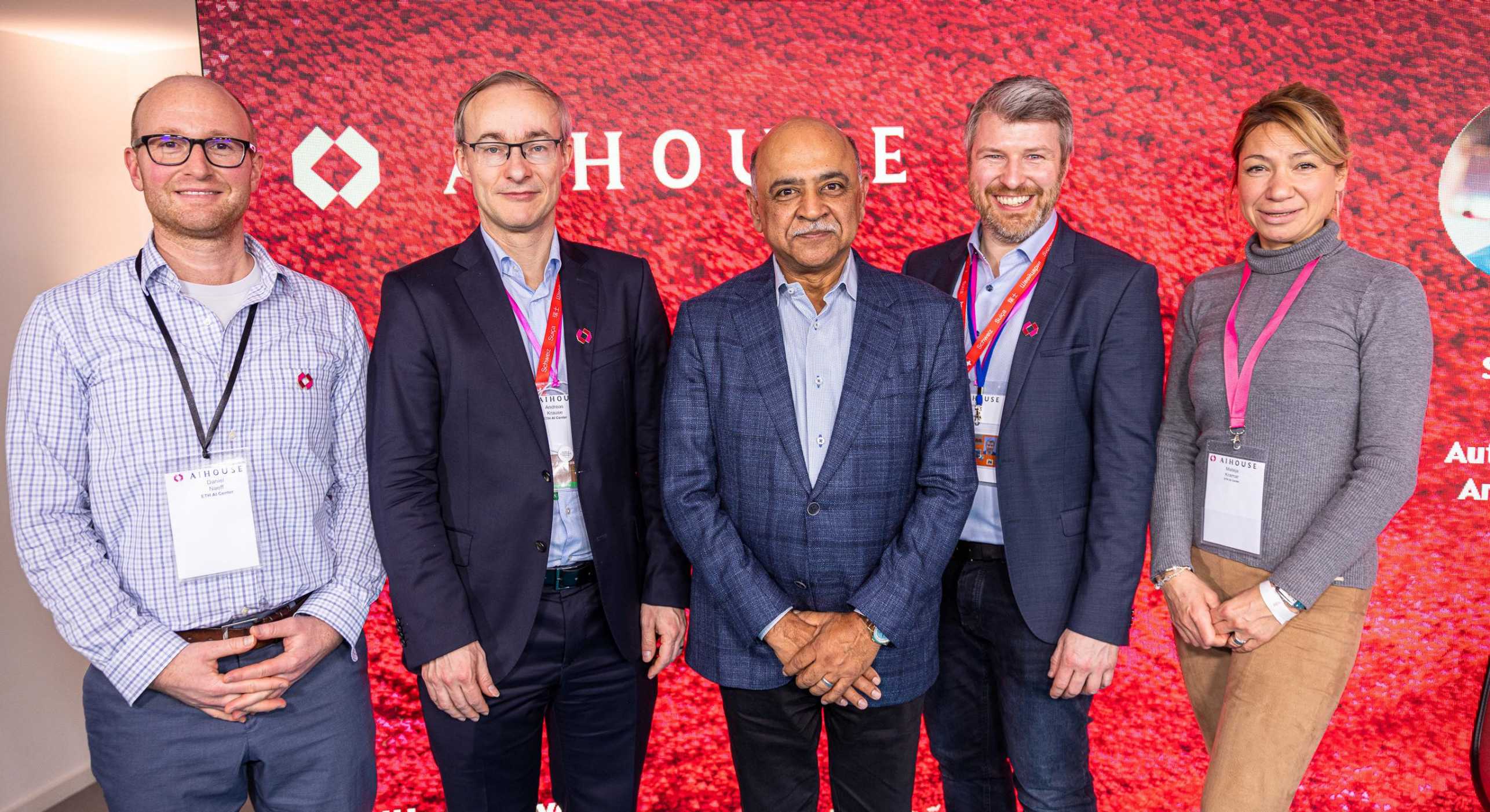A boost for AI for scientific discovery applications
IBM and ETH Zurich announce a Discovery Accelerator Hub within the ETH AI Center, as ETH joins the AI Alliance.
On the sidelines of the World Economic Forum in Davos, Switzerland, IBM and the AI Center of ETH Zurich have announced a four-year long collaboration to turbocharge the development of artificial intelligence for scientific discovery applications – the ETH-IBM Discovery Accelerator Hub Program. The initiative, which officially started on 1 January 2024, will welcome ETH students to apply through the fellowship process of the ETH AI Center, with IBM Research committing to provide financial support for a maximum of 12 students for the entirety of the four-year program.
The announcement takes place just weeks after ETH, along with more than 50 other organizations around the world, joined the external page AI Alliance, launched on 5 December 2023 by IBM and Meta.
Co-mentoring of scholars
The Discovery Accelerator Hub Program is aimed at cultivating the next generation of AI pioneers by fostering academia-industry collaboration and interdisciplinary research. The Program will focus on exploring and pioneering new AI technologies for scientific discovery applications. Among the main focus areas are the research topics that should lay the groundwork for future breakthroughs: Multi-modal Foundation Models for Science and Trustworthy AI for Discovery, while ensuring the outcomes are developed responsibly and openly.

This collaborative effort is spearheaded by the joint expertise of scientists from ETH, ETH AI Center, and IBM Research Europe – Zurich lab. Central to the collaboration's vision is the joint mentoring of PhD students. IBM Research has been collaborating with ETH for decades, welcoming and training PhD students and postdocs. By combining the strengths of IBM Research mentors and ETH AI Center supervisors, the program will ensure a comprehensive and enriching learning experience for the scholars. The call for ETH AI Center doctoral researchers is one of the most competitive worldwide and this year, it witnessed an overwhelming response, with over 1000 potential candidates expressing their interest.
“IBM is thrilled to be collaborating with ETH Zurich, a world-renown institution that has over the years produced a lot of brilliant talent,” said Alessandro Curioni, IBM Research VP Europe and Africa and the Director of the IBM Research Europe – Zurich lab. “We look forward to contributing to the world by working together with ETH scientists and students on responsible development on new AI technologies of the future.”
Fostering open-source AI in collaboration
The Discovery Accelerator Hub Program aims to foster deep collaborations among the members of the AI Alliance to advance its mission of skills and talent development and the creation of next generation open technology for AI. The AI Alliance, initiated by IBM and Meta, already has more than 50 organizations among its ranks – including ETH. The idea is to embrace open-source AI, with members contributing their expertise, infrastructure or technology to enable collaboration to advance AI and ensure it is safe, secure and trusted. The AI Alliance will also focus on fostering open discussions on regulating AI responsibly and mitigating risks when new AI models are developed or deployed.